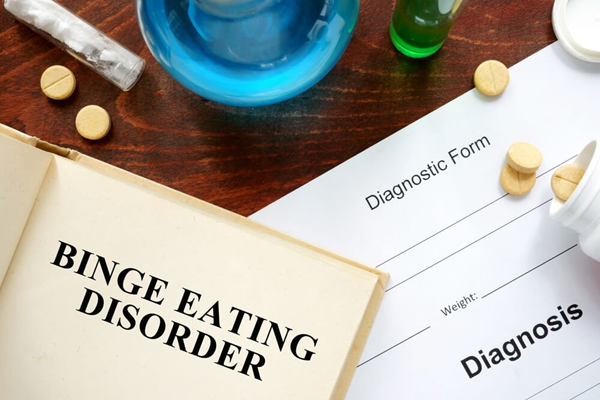What is a Binge Eating Disorder?

Binge Eating Disorder (BED) is a serious and often misunderstood mental health condition that affects individuals who frequently consume large quantities of food within a short time frame and feel a lack of control over their eating. Unlike other eating disorders, such as bulimia nervosa, people with BED do not engage in purging behaviours like vomiting or excessive exercise. Instead, the disorder is characterised by episodes of overeating, often in response to emotional distress, stress, or anxiety, followed by feelings of shame, guilt, or embarrassment.
BED is the most common eating disorder in the UK, and it can affect people of all ages, backgrounds, and sizes. Mental health conditions like depression, anxiety, or low self-esteem often associate with BED. The emotional toll of BED can also lead to other physical health problems, such as obesity, diabetes, high blood pressure, and heart disease. Although the precise cause of BED remains unclear, experts believe it stems from a complex interplay of genetic, psychological, and environmental factors.
Treatment for BED typically involves therapy, such as Cognitive Behavioural Therapy (CBT), which helps individuals understand and change their thought patterns around eating. Nutritional counselling can also help develop a healthy relationship with food. Doctors may prescribe medication in certain cases to help manage the psychological and emotional aspects of the disorder.
How medical cannabis can help with binge eating disorder
For those suffering from a binge eating disorder, medical cannabis has shown potential as a supportive treatment option. Recent years have explored cannabis for binge eating disorders due to its potential to manage anxiety, stress, and emotional triggers that often contribute to episodes of overeating. Certain cannabinoids, particularly THC and CBD, are believed to have mood-stabilising effects, reduce anxiety, and promote relaxation. This can help alleviate some of the emotional distress associated with BED.
Cannabis may also help regulate appetite and cravings, potentially providing relief from the compulsion to overeat. Cannabis could serve as part of a broader treatment plan to reduce stress and improve overall well-being for individuals whose emotional or psychological factors drive binge eating.
In the UK, individuals seeking cannabis treatment for BED can consult with professionals such as MARUCANNA, a provider of cannabis prescriptions. MARUCANNA works with patients to assess their needs and, when appropriate, offers guidance on using medical cannabis as part of their treatment plan. Their expertise ensures that patients can access cannabis-based products in a safe, legal, and medically supervised manner, helping those with Binge Eating Disorder explore an alternative route for managing their symptoms. If you are considering medical cannabis as a treatment option, speaking with a healthcare professional at MARUCANNA can provide you with the necessary support and guidance.


